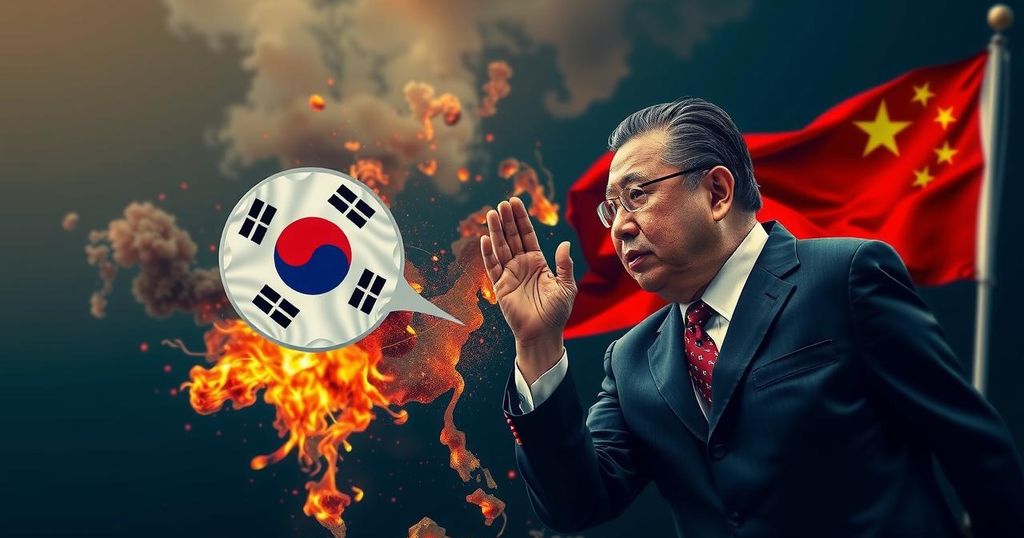Global news
ASIA, ASIA - PACIFIC ECONOMIC COOPERATION, ASIA CENTRE, BIDEN ADMINISTRATION, CENTRE, DONALD TRUMP, ENERGY INFRASTRUCTURE, FOREIGN POLICY, GEOPOLITICS, HARVARD UNIVERSITY, INTERNATIONAL RELATIONS, JAPAN, JOE BIDEN, LEE SEONG - HYON, MILITARY DRILLS, NORTH AMERICA, PERU, SC, SOUTH AMERICA, UNITED STATES, WHITE HOUSE, XI, XI JINPING
Fatima Khan
0 Comments
Xi Jinping’s Warning Signals China’s Growing Concerns Over Korean Peninsula
President Xi Jinping’s warning about instability in the Korean peninsula reveals China’s deepening concerns over geopolitical tensions, especially amid North Korea’s nuclear provocations. Xi emphasized China’s refusal to tolerate conflict that threatens its strategic interests. This highlights China’s pressures to manage its relationship with North Korea and both Pyongyang and Moscow’s military activities while aiming to assert influence amid growing U.S.-Japan-South Korea alliances.
The recent warning from President Xi Jinping regarding instability on the Korean peninsula underscores China’s escalating anxieties concerning the regional geopolitical dynamics. As tensions rise due to North Korea’s nuclear provocations and military activities, Beijing feels the pressure not only to address its strategic security interests but also to manage its associations with both Pyongyang and Moscow. Xi articulated China’s firm stance against conflict in the region while simultaneously grappling with criticism over its ties with these nations, reflecting his dual goals of promoting stability and asserting China’s influence in the evolving geopolitical landscape.
The Korean peninsula has long been a focal point of geopolitical tension, particularly between North Korea, South Korea, and external powers such as the United States and China. With North Korea’s continued military provocations and the growing Defense cooperation among the United States, Japan, and South Korea, the region’s stability remains precarious. Furthermore, China’s critical role as a neighboring power adds complexity to the situation, as it aims to balance its relationships and strategic interests without alienating its allies or antagonizing its adversaries.
In summary, President Xi Jinping’s warning regarding the Korean peninsula highlights the multifaceted challenges China faces in maintaining regional stability. It reflects Beijing’s concerns about North Korea’s actions, the strengthening military alliances opposing it, and the broader implications for China’s security interests. As geopolitical tensions rise, China’s assertive stance signals its intent to remain a central player in shaping the future of the region amid increasing instability.
Original Source: www.scmp.com




Post Comment